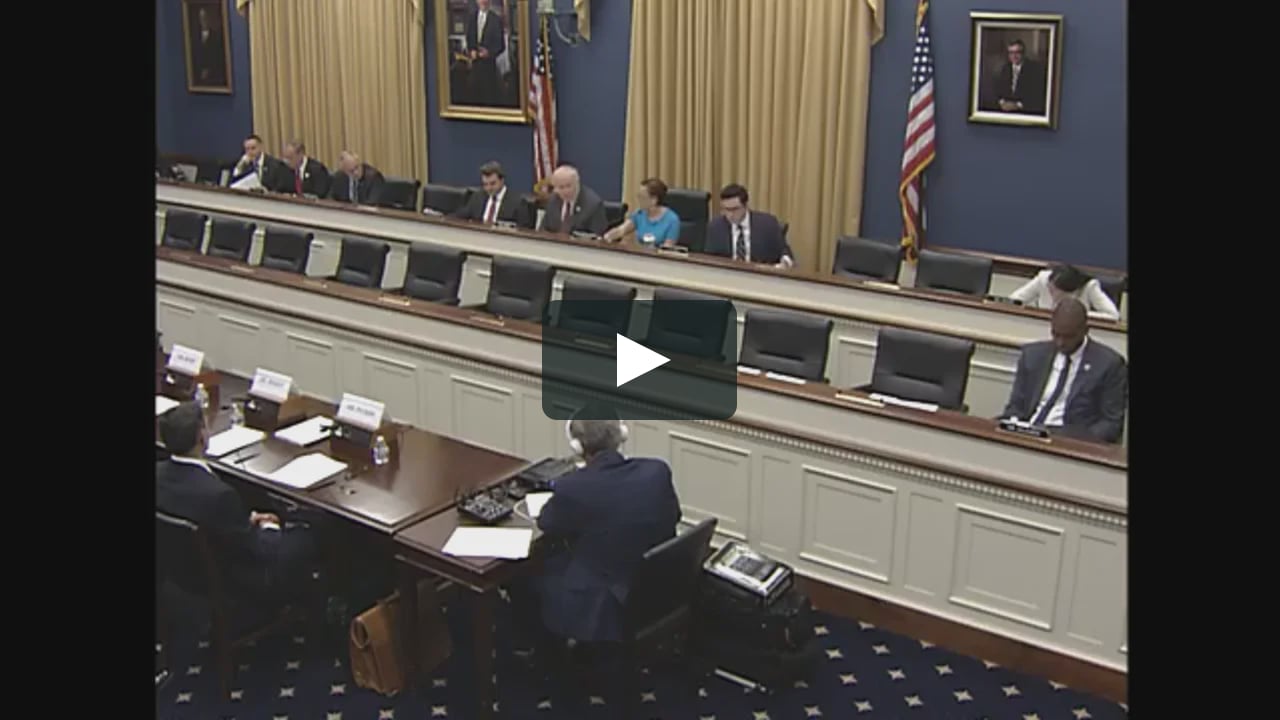Related Headlines
| 04/08/2019 | Confessions of Judgment |
Related Videos
Crushed By Confessions of Judgment - House Hearing |
Stories
“Predatory Lenders” Slammed as Bill to Ban Confessions of Judgment Nationwide Advances
November 14, 2019
(Bloomberg is majority owner of Bloomberg News parent Bloomberg LP)
Rep. Nydia Velázquez (D) celebrated the advancement of a bill on Thursday that aims to outlaw confessions of judgment (COJs) in commercial finance transactions nationwide. HR 3490, dubbed the Small Business Lending Fairness Act, made its way through the House Financial Services Committee on a vote of 31-23. The next step will be a floor vote.
Velázquez made direct references to a Bloomberg News story series published last year about “predatory lending” and a NY Times article about Taxi medallion loans as her basis for supporting it. Velázquez said that New York had become a breeding ground for “con artists” that relied on COJs to prey on mom-and-pop businesses. The congresswoman singled out New York because of recent taxi medallion loan outrage and the state’s alleged reputation as a “clearing house” for obtaining fast easy judgments against debtors nationwide. New York took a major step to change that practice earlier this year through a new law that only allows COJs to be filed in the state against New York residents. HR 3490 seeks to prevent them from being filed in every state, including New York.
 Ironically then, the bill is at odds with the new New York law in that Velázquez’s bill, if it became federal law, would go so far as to prevent New York’s own courts from entering a COJ against New York’s own residents, if it resulted from a commercial finance transaction.
Ironically then, the bill is at odds with the new New York law in that Velázquez’s bill, if it became federal law, would go so far as to prevent New York’s own courts from entering a COJ against New York’s own residents, if it resulted from a commercial finance transaction.
While momentum in the House could be perceived as a partisan initiative unlikely to survive the Senate, the bill has in fact garnered a degree of Republican support, recently through Rep. Roger W. Marshall, a co-sponsor of the bill, and originally by Senator Marco Rubio who initially sparked the call to action in the Senate last year.
The Financial Svcs Committee approved my bill to end "Confessions of Judgment", contracts that allow for unfair, predatory small business loans & that have been linked to #taximedallion crisis in NYC.
On to the House floor!
Read More: https://t.co/xHaYnLKme4@NYTW @FSCDems
— Rep. Nydia Velazquez (@NydiaVelazquez) November 14, 2019
A co-author of the COJ-centric Bloomberg News stories was quick to take the credit for the advancement of Velázquez’s bill.
the bill was drafted in response to our series Sign Here to Lose Everythinghttps://t.co/lrfIW3P0yi
— Zeke Faux (@ZekeFaux) November 14, 2019
NYC Taxi Industry Leads Charge to Ban Confessions of Judgment Nationwide
September 30, 2019 New York State may have outlawed entering confessions of judgments (COJs) against out-of-state debtors in their courts, but federal legislators want to see a ban on their use nationwide. On Thursday, the House Financial Services Committee convened for a hearing on predatory debt collection. Notably adding small businesses to the mix with consumers, COJs repeatedly came under attack.
New York State may have outlawed entering confessions of judgments (COJs) against out-of-state debtors in their courts, but federal legislators want to see a ban on their use nationwide. On Thursday, the House Financial Services Committee convened for a hearing on predatory debt collection. Notably adding small businesses to the mix with consumers, COJs repeatedly came under attack.
Testimony presented by Bhairavi Desai, executive Director of the 22,000 member New York Taxi Workers Alliance, claimed that predatory lenders are aggressively relying on COJs to “intimidate borrowers into making large sum payments towards outstanding loan balances.” Desai provided one such COJ affidavit to the Committee in which allegedly victimized defendants had confessed to judgment for nearly $600,000. The plaintiff was 160-year-old New York Community Bank, not an alternative finance company.
The NYC taxi business has moved front and center after the New York Times published a bombshell story in May that alleged lenders unfairly trapped Taxi medallion owners into loans they could not repay. The occasional reliance on COJs was vaguely mentioned but struck a nerve with critics already frothing to make them illegal.
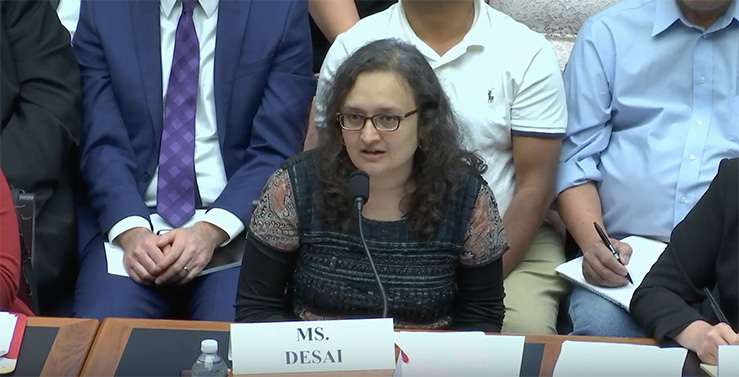 Desai explained that unusually high suicide rates in the taxi business are rooted in part by predatory lending practices. “The real stories are the tens of thousands of drivers we see today that are really dying a slow death from despair, from stress from the crisis of this debt,” she told the Committee on Thursday. “Confessions of judgment have basically meant that when [the taxi medallion market] started to fall, drivers were told that they had to pay up the total sum of what was owed on that debt, had to produce $350,000, $400,000 overnight.”
Desai explained that unusually high suicide rates in the taxi business are rooted in part by predatory lending practices. “The real stories are the tens of thousands of drivers we see today that are really dying a slow death from despair, from stress from the crisis of this debt,” she told the Committee on Thursday. “Confessions of judgment have basically meant that when [the taxi medallion market] started to fall, drivers were told that they had to pay up the total sum of what was owed on that debt, had to produce $350,000, $400,000 overnight.”
FTC Commissioner Rohit Chopra voiced his support for a COJ ban when called upon to testify. “The FTC has unique jurisdiction to attack debt collection and discrimination issues in the small business lending market and we should look to restrict terms like confessions of judgment that the FTC banned in consumer loans ages ago.”
The Bloomberg stories that led to new legislation in New York were only mentioned during the hearing once and only in passing.
A slew of bills have been introduced to pursue the Committee’s initiatives. In addition to the Small Business Fairness Lending Act that would outlaw COJs from small business finance transactions nationwide, the Small Business Fair Debt Collection Protection Act seeks to apply the existing Fair Debt Collections Practices Act to small businesses and effectively put small business lenders under the regulatory purview of the CFPB.
You can watch the hearing below:
Analyzing Confessions of Judgment
March 4, 2019 Platzer, Swergold, Levine, Goldberg, Katz & Jaslow, LLP (“Platzer”) has built one of the leading Merchant Cash Advance practices in New York City. With years of experience handling traditional lending transactions, Platzer has expanded its representation to Merchant Cash Advance Companies (“MCA”) in all aspects of their business cycles, including Participation Agreements, Assets Utilization, Transactional related matters and litigation.
Platzer, Swergold, Levine, Goldberg, Katz & Jaslow, LLP (“Platzer”) has built one of the leading Merchant Cash Advance practices in New York City. With years of experience handling traditional lending transactions, Platzer has expanded its representation to Merchant Cash Advance Companies (“MCA”) in all aspects of their business cycles, including Participation Agreements, Assets Utilization, Transactional related matters and litigation.
In the course of representing some of its MCA clients within the State of New York, Platzer has identified a potential issue in certain counties within New York State that are denying entry of Confessions of Judgment (“COJs”), notwithstanding language that has been contractually agreed upon and explicitly sets forth that the Confession of Judgment “may be entered in any and all counties with in the State of New York”, when the defendant is a non-resident.
The following is not a legal opinion but is our preliminary analysis:
It is Platzer’s position that New York Civil Practice Law and Rules (“CPLR”) 3218(a)(1) provides that when the defendant is a “non-resident” that judgment by confession may be entered in “the county in which entry is authorized.” Further, CPLR 3218(b) allows entry of judgment by confession as to a non-resident“ with the clerk of the county designated in the affidavit.” Platzer respectfully argued to the subject county that its jurisdiction is within the scope of authorization of “all counties” in the State of New York, and that the defendant “authorized” entry of judgment in the subject County, as contemplated by CPLR 3218(a)(1), and was also designated, as one of “all counties” in the State of New York, satisfying CPLR 3218(b), yet the Confession was denied entry.
As Platzer then noted, there is case authority for the proposition that non-resident defendants may subject themselves under CPLR § 3218 to the entry of judgment by confession in multiple counties. To Platzer’s knowledge, no Court has passed on the precise language of “all counties” or similar language. In the analogous situation where the confession of judgment executed by the non-resident defendant allowed entry in multiple but not “all” counties, Courts have routinely upheld entry of the judgment, while noting that there is no authority that would prohibit such entry under CPLR § 3218. Platzer has contended that this case law supports the notion that entry of confessions of judgment with “all counties” language is proper under CPLR § 3218.
As of March 4, 2019, Platzer is actively discussing these issues with the subject counties within the State of New York and hopes that its arguments will be persuasive based upon current New York law. Platzer is aware, however, of the state and national legislative efforts to curtail the entry of confessions of judgment and, specifically, the recent legislative proposal by Governor Andrew Cuomo to restrict entry of confessions of judgment to defendants doing business in New York and in amounts over $250,000.00. Platzer expresses no opinion as to these efforts.
Contacts:
Howard M. Jaslow
hjaslow@platzerlaw.com
Morgan S. Grossman
mgrossman@platzerlaw.com
Platzer, Swergold, Levine, Goldberg, Katz & Jaslow, LLP
475 Park Avenue South, 18th Floor
New York, New York 10016
Telephone: (212) 593-3000 ext. 248
Facsimile: (212) 593-0353
Get The Affidavit or Waive It? Examining Confessions of Judgment
February 1, 2019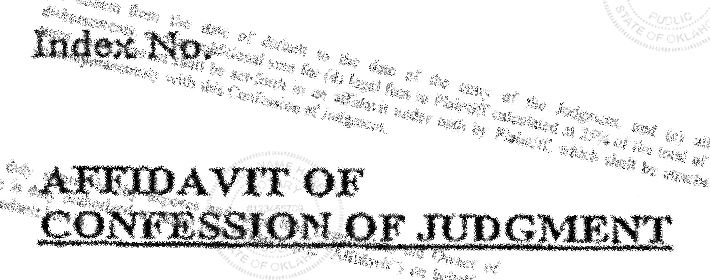 Caton Hanson, the chief legal officer and co-founder of the online credit-reporting and business-to-business matchmaker Nav, says that his Salt Lake City-based company would not associate with a small-business financier that included “confessions of judgment” in its credit contracts.
Caton Hanson, the chief legal officer and co-founder of the online credit-reporting and business-to-business matchmaker Nav, says that his Salt Lake City-based company would not associate with a small-business financier that included “confessions of judgment” in its credit contracts.
“If we understood that any of our merchant cash advance partners were using confessions of judgment as a means to enforce contracts,” Hanson told deBanked, “we would view that as abusive and distance ourselves from those partners. As a venture-backed company,” Hanson adds, “we have some significant investors, including Goldman Sachs, and I’m sure they would support us.”
Steve Denis, executive director of the Small Business Finance Association, which represents companies in the merchant cash advance (MCA) industry, says that, as an organization, “We’ve taken a strong stance against confessions of judgment.”
He reports that his Washington, D.C.-based trade group is prepared to work with legislators and policy-makers of any political party, regulators, business groups and the news media “to ban that type of practice.
“We’re fighting against the image that we’re payday lenders for business,” Denis says of the merchant cash advance industry. “We’re trying to figure out internally what we can do to stop that from happening and we have been speaking to members of Congress and their staff.”
“Confessions of judgment,” says Cornelius Hurley, a law professor at Boston University and executive director of the Online Lending Policy Institute, “are to the merchant cash advance industry what mandatory arbitration is to banks. Neither enforcement device reflects well on the firms that use them.”
These are just some of the reactions from members of the alternative lending and financial technology community to a blistering series of articles published by Bloomberg News on the use—and alleged misuse—of confessions of judgment (COJs) by merchant cash advance companies. The series charges the MCA industry with gulling unwary small businesses by not only charging high interest rates for quick cash but of using confession-laden contracts to seize their assets without due process.
The Bloomberg articles also reported that it doesn’t matter in which state the small business debtors reside. By bringing legal action in New York State courts, MCA companies have been able to use enforcement powers granted by the confessions to collect an estimated $1.5 billion from some 25,000 businesses since 2012.
“I don’t think anyone can read that series of articles and honestly say what went on were good practices and in the best interest of small business,” says SBFA’s Denis, noting that none of the companies cited in the Bloomberg series belonged to his trade group. “It’s shocking to see some companies in our space doing things we’d classify as predatory,” he adds. “As an industry we’re becoming more sophisticated, but there are still some bad actors out there.”
 A confession of judgment is a hand-me-down to U.S. jurisprudence from old English law. The term’s quaint, almost religious phrasing evokes images of drafty buildings, bleak London fog, and dowdy barristers in powdered wigs and solemn black gowns. (And perhaps debtor prisons as well.)
A confession of judgment is a hand-me-down to U.S. jurisprudence from old English law. The term’s quaint, almost religious phrasing evokes images of drafty buildings, bleak London fog, and dowdy barristers in powdered wigs and solemn black gowns. (And perhaps debtor prisons as well.)
Yet while the legal provision’s wings have been clipped—the Federal Trade Commission banned the use of confessions of judgment in consumer credit transactions in 1985 and many states prohibit their use outright or in such cases as residential real estate contracts—COJs remain alive and well in many U.S. jurisdictions for commercial credit transactions.
Even so, most states where COJs are in use, such as California and Pennsylvania, have adopted safeguards. Here’s how the San Francisco law firm Stimmel, Stimmel and Smith describes a COJ.
“A confession of judgment is a private admission by the defendant to liability for a debt without having a trial. It is essentially a contract—or a clause with such a provision—in which the defendant agrees to let the plaintiff enter a judgment against him or her. The courts have held that such a process constitutes the defendant’s waiving vital constitutional rights, such as the right to due process, thus (the courts) have imposed strict requirements in order to have the confession of judgment enforceable.”
In California, those “strict requirements” include not only that a written statement be “signed and verified by the defendant under oath,” but that it must be accompanied by an independent attorney’s “declaration.” If no independent attorney signs the declaration or—worse still—the plaintiff’s attorney signs the document, the confession is invalid.
But if the confession is “properly executed,” the plaintiff is entitled to use the full panoply of tools for collection of the judgment, including “writs of execution” and “attachment of wages and assets.”
 In Pennsylvania, confessions of judgment are nearly as commonplace as Philadelphia Eagles’ and Pittsburgh Steelers’ fans, particularly in commercial real estate transactions. Says attorney Michael G. Louis, a partner at Philadelphia-area law firm Macelree Harvey, “They may go back to old English law, but if you get a business loan or commercial lease in Pennsylvania, a confession of judgment will be in there. It’s illegal in Pennsylvania for a consumer loan or residential real estate. But unless it’s a national tenant with a ton of bargaining power—a big anchor store and the owner of the shopping center really wants them—95% of commercial leasing contracts have them.
In Pennsylvania, confessions of judgment are nearly as commonplace as Philadelphia Eagles’ and Pittsburgh Steelers’ fans, particularly in commercial real estate transactions. Says attorney Michael G. Louis, a partner at Philadelphia-area law firm Macelree Harvey, “They may go back to old English law, but if you get a business loan or commercial lease in Pennsylvania, a confession of judgment will be in there. It’s illegal in Pennsylvania for a consumer loan or residential real estate. But unless it’s a national tenant with a ton of bargaining power—a big anchor store and the owner of the shopping center really wants them—95% of commercial leasing contracts have them.
“And any commercial bank in Pennsylvania worth its salt includes them in their commercial loan documents,” Louis adds.
Pennsylvania’s laws governing COJs contain a number of additional safeguards. For example, the confession of judgment is part of the note, guaranty or lease agreement—not a separate document—but must be written in capital letters and highlighted. One of the defenses that used to be raised against COJs, Louis says, was that a contractual document was written in fine print “but we haven’t seen fine print for years.”
Other reforms in Pennsylvania have come about, moreover, as a result of a 1994 case known as “Jordan v. Fox Rothschild.” Says Louis: “It used to be lot worse. You used to be able to file a confession of judgment and levy on a defendant’s bank account before he knew what happened. It was brutal. But after the Fox Rothschild case, they changed the law to prevent taking away a defendant’s right of notice and the opportunity to be heard.”
Because of that case, which takes its name from the Fox Rothschild law firm and involved a dispute between a Philadelphia landlord renting commercial space to Jordan, a tenant, the law governing COJs in Pennsylvania requires, among other things, a 30-day notice before a creditor or landlord can execute on the confession. During that period the defendant has the opportunity to stay the execution or re-open the case for trial.
 Defenses against the execution of a COJ can entail arguments that creditors failed to comply with the proper language or procedures in drafting the document. But the most successful argument, Louis says, is a “factual defense.” Louis cites the case of a retail clothing store renting space in a shopping center that has a leaky roof. In the 30-day notice period after the landlord invoked the confession of judgment, the tenant was able to demonstrate to the court that he had asked the landlord “ten times” to fix the roof before spending the rent money on roof repairs. In such a case, the courts will grant the defendant a new trial but, Louis says, the parties typically reach a settlement. “Banks generally will waive a jury trial,” he notes, “because they don’t want to take a chance of getting hammered by a jury.”
Defenses against the execution of a COJ can entail arguments that creditors failed to comply with the proper language or procedures in drafting the document. But the most successful argument, Louis says, is a “factual defense.” Louis cites the case of a retail clothing store renting space in a shopping center that has a leaky roof. In the 30-day notice period after the landlord invoked the confession of judgment, the tenant was able to demonstrate to the court that he had asked the landlord “ten times” to fix the roof before spending the rent money on roof repairs. In such a case, the courts will grant the defendant a new trial but, Louis says, the parties typically reach a settlement. “Banks generally will waive a jury trial,” he notes, “because they don’t want to take a chance of getting hammered by a jury.”
A number of states, including Florida and Massachusetts ban the use of confessions of judgment. That’s one big reason that Miami attorney Roger Slade, a partner at Haber Law, advises clients that “there’s no place like home.” In other words: commercial contracts should specify that any legal disputes will be adjudicated in Florida. “It’s like having home field advantage in the NFL playoffs,” Slade remarked to deBanked. “You don’t want to play on someone else’s turf.”
He has also been warning Floridians for several years against the way that COJs were treated by New York courts. Writing in the blog, “The Florida Litigator,” Slade—a native New Yorker who is certified to practice law there as well as in Florida counseled in 2012: “If you live in New York, a creditor can have your client sign a confession of judgment and, in the event of a default on a loan, can march directly to the courthouse and have a final judgment entered by the clerk. That’s right—no complaint, no summons, no time to answer, no two-page motion to dismiss. The creditor gets to go right for the jugular.”
In addition, because of the “full faith and credit clause of the U.S. Constitution,” Slade notes in an interview, a contract that’s enforced by the New York courts must be honored in Florida. “Courts in Florida have no choice,” Slade says. “It’s a brutal system and it’s unfortunate.”
In December, two U.S. senators from opposing parties—Ohio Democrat Sherrod Brown and Florida Republican Marco Rubio—introduced bipartisan legislation to amend both the Federal Trade Commission Act and Truth in Lending Act to do away with COJs. Their legislative proposal reads:
“(N)o creditor may directly or indirectly take or receive from a borrower an obligation that constitutes or contains a congnovit or confession of judgment (for purposes other than executory process in the State of Louisiana), warrant of attorney, or other waiver of the right to notice and the opportunity to be heard in the event of suit or process theron.”
But with a dysfunctional and divided federal government, warring power factions in Washington, and an influential financial industry, there’s no telling how the legislation will fare. Meantime, the New York State attorney general’s office announced in December that it will investigate the use of COJs following the Bloomberg series. And New York Governor Andrew Cuomo has declared support for legislation that will, among other things, prohibit the use of confessions in judgment for small business credit contracts under $250,000 and restrict judgments by New York courts to in-state parties.
But if New York State or Congressional legislation are adopted it can have “unintended consequences” to merchant cash advance firms in the Empire State—and to their small business customers as well—asserts the general counsel for one MCA firm. “Losing the confession of judgment will be removing what little safety net there is in a risky industry,” the attorney says, noting that the industry has roughly a 15% default rate.
“It is not as powerful a tool as the Bloomberg news stories would have you believe,” this attorney, who spoke on the condition of anonymity, told deBanked. “The suggestion seems to be that the MCAs can use the confession of judgment to get back the total amount of money due—and then some—while leaving a trail of dead bodies behind. But that’s not the case.
“What is much more likely to be the case,” he adds, “is that MCA companies try to get the defaulting merchant back on track. And—probably more than we should and only after we’ve tried to reach out to them and failed—do we then reluctantly use the COJ as a last resort. At which point we hope we can recover some part of our exposure. The numbers vary, but the losses are always in the thousands of dollars. These are not micro-transactions.
“What’s going to happen,” he concludes, “is that It will not make sense for us to work with those merchants most in need of working capital. The unfortunate reality is that businesses who don’t have collateral and can’t get a Small Business Administration product will be left out in the cold.”
All of which prompts BU professor Hurley to argue that the “Swiss cheese” system of financial regulation among the 50 states continues to be a root cause of regulatory confusion. Echoing Miami attorney Slade’s concern about New York courts’ dictating to Florida citizens, Hurley likens the situation governing COJs with the disorderly array of state laws governing usury regulations.
In the 1978 “Marquette” decision, the U.S. Supreme Court ruled that a Nebraska bank, First of Omaha, could issue credit cards in Minnesota and charge interest rates that exceeded the usury rate ceiling in the Gopher State. Since then, usury rates enacted by state legislatures have become virtually unenforceable.
“The problem we’re seeing with confessions of judgment is a subset of the usury situation,” Hurley says. “One state’s disharmony becomes a cancer on the whole system. It’s a throwback to Colonial times with 50 states each having their own jurisdictions—and it doesn’t work.”
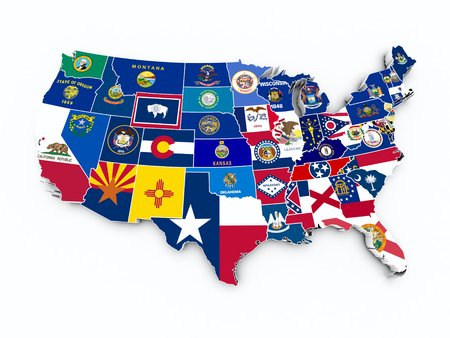 Hurley’s Online Lending Policy Institute has joined with the Electronic Transactions Association and recruited a phalanx of “academics, non-banks, law firms and other trade associations as members or affiliates” to form the Fintech Harmonization Task Force. It is monitoring the efforts by the 50 states to align their regulatory oversight of the booming financial technology industry which was recently recommended by a U.S. Treasury report.
Hurley’s Online Lending Policy Institute has joined with the Electronic Transactions Association and recruited a phalanx of “academics, non-banks, law firms and other trade associations as members or affiliates” to form the Fintech Harmonization Task Force. It is monitoring the efforts by the 50 states to align their regulatory oversight of the booming financial technology industry which was recently recommended by a U.S. Treasury report.
Tom Ajamie, who practices law in New York and Houston and has won multimillion-dollar, blockbuster judgments against “dozens of financial institutions” including Wall Street investment firms, also argues for greater regulatory oversight. He urges greater funding and expansion of the powers of the Consumer Financial Protection Bureau to rein in “the anticipatory use” of confessions of judgment in commercial transactions.
However, notes Catherine Brennan, a partner at Hudson Cook in Baltimore, the job of protecting small businesses is outside the agency’s mandate. “The CFPB doesn’t have authority over commercial products as a general rule,” she explained in an interview. “Consumers are viewed as a vulnerable population in need of protections since the 1960’s.” As a society “we want protection for households because the consequences are high. A family could become homeless if they lose a house. Or (they) could lose employment if they lose a car and can’t drive. And there is also unequal bargaining power between lenders and consumers.
“Large institutions have lawyers to draft contracts and consumers have to agree on a take it or leave it basis. So there’s not a lot of negotiation and government has decided that consumers need protections, including a (Federal Trade Commission) ban on confessions of judgment.”
But Christopher Odinet, a law professor at the University of Oklahoma and a member of Hurley’s harmonization task force, sees the efforts of the federal government and the states to grapple with confessions of judgment as further recognition that small businesses have more in common with consumers than with big business. The COJ controversy follows on the recent passage of a commercial truth-in-lending bill by the State of California which, for the first time, stipulated that consumer-style disclosures should be included in business loans and financings under $500,000 made by non-bank financial organizations.
He cites the close-to-home example of an accomplished professional who got in over his head in financial dealings. “I recently observed a situation where a family member who is a very successful and affluent medical professional was relying on his own untrained business skills,” Odinet says. “He was about to enter into a sophisticated and complex business partnership relying on his intuition and general sense of confidence in the other party.”
Odinet says that he recommended that his relative hire a lawyer. Which, Odinet says, he did.
Confessions of Judgment in MCA Make the Evening News
January 21, 2019Erie County Clerk Michael Kearns is no longer processing Confessions of Judgment (COJs) in Erie County for merchant cash advance companies, according to a statement his office published this week. Prior to being elected Clerk, Kearns was an assemblyman in the New York State legislature.
On Monday night, Kearns appeared on Channel 4’s evening news in Buffalo to discuss why his office had made the decision. Both Kearns and the local newscaster cite a highly controversial story series published by Bloomberg.
A review by deBanked of the series, revealed that two Bloomberg reporters had performed little or no fact checking of their sources. In one instance, for example, Bloomberg featured a business that had allegedly been “wiped out” by a $40,000 predatory loan gone wrong. Public records confirmed however, that the business owners continued to pay themselves more than a $100,000 salary from that business and that they still had nearly a million dollars flowing through their bank accounts. Facebook painted a similar picture, as one of the owners openly bragged about owning a new Camaro Super Sport with racing stripes.
Neither reporter has offered any explanation for the inaccuracies in their reporting.
Despite this, lawmakers and the Governor alike have called for an end to COJs in business credit transactions. You can watch the evening news segment below:
Ohio Considers Regulation of Confessions of Judgment
March 20, 2016 In a commercial lending context, courts and legislatures have generally assumed that the parties to the agreement have relatively equal bargaining power. Because of this understanding – that a business borrower is more sophisticated than a consumer borrower – regulation has been more “hands off” with regard to the terms commercial loans may contain. One such clause frequently found in commercial loan agreements is a confession of judgment clause, also called a cognovit judgment. A confession of judgment is written authorization by the borrower directing the entry of a judgment against him in the event he defaults on payment. A confession of judgment clause in a loan agreement permits the creditor on default to appear in court and confer judgment against the borrower.
In a commercial lending context, courts and legislatures have generally assumed that the parties to the agreement have relatively equal bargaining power. Because of this understanding – that a business borrower is more sophisticated than a consumer borrower – regulation has been more “hands off” with regard to the terms commercial loans may contain. One such clause frequently found in commercial loan agreements is a confession of judgment clause, also called a cognovit judgment. A confession of judgment is written authorization by the borrower directing the entry of a judgment against him in the event he defaults on payment. A confession of judgment clause in a loan agreement permits the creditor on default to appear in court and confer judgment against the borrower.
 Interestingly, Ohio is now considering legislation to regulate the use of the confession of judgment in a commercial loan agreement. House Bill 291 would require attorneys for creditors to include in a petition for confession of judgment the borrower’s last known address so that the borrower can be advised of the creditor’s decision to execute on the confession of judgment. Such notice gives the borrower the opportunity to dispute the execution on the confession of judgment clause. It would further provide that a confession of judgment be made “only for nonpayment of principal and interest under the terms of an instrument evidencing indebtedness,” which would eliminate the ability to obtain other damages. It also bans the use of the clause for something other than a nonmonetary default, which some Ohio courts have allowed. For example, in Fifth Third Bank v. Pezzo Construction, an Ohio appellate court allowed execution on a confession of judgment where the borrower failed to pay all taxes when due as required by the loan agreement. Another court rejected such use of confessions of judgment in Henry County Bank v. Stimmels, Inc. House Bill 291, if adopted, would make clear that only payment defaults can result on a confession of judgment.
Interestingly, Ohio is now considering legislation to regulate the use of the confession of judgment in a commercial loan agreement. House Bill 291 would require attorneys for creditors to include in a petition for confession of judgment the borrower’s last known address so that the borrower can be advised of the creditor’s decision to execute on the confession of judgment. Such notice gives the borrower the opportunity to dispute the execution on the confession of judgment clause. It would further provide that a confession of judgment be made “only for nonpayment of principal and interest under the terms of an instrument evidencing indebtedness,” which would eliminate the ability to obtain other damages. It also bans the use of the clause for something other than a nonmonetary default, which some Ohio courts have allowed. For example, in Fifth Third Bank v. Pezzo Construction, an Ohio appellate court allowed execution on a confession of judgment where the borrower failed to pay all taxes when due as required by the loan agreement. Another court rejected such use of confessions of judgment in Henry County Bank v. Stimmels, Inc. House Bill 291, if adopted, would make clear that only payment defaults can result on a confession of judgment.
House Bill 291 is not yet scheduled for a hearing.
New Jersey is Propelling its Own Confession of Judgment Bill
December 12, 2019 The New Jersey legislature has climbed aboard the Confession of Judgment restriction train. On Thursday, the state’s Senate Commerce Committee advanced S3581, a bill that would prohibit the use of COJs in a “business financing” contract with a New Jersey debtor. The bill was introduced in March but had not experienced movement until today.
The New Jersey legislature has climbed aboard the Confession of Judgment restriction train. On Thursday, the state’s Senate Commerce Committee advanced S3581, a bill that would prohibit the use of COJs in a “business financing” contract with a New Jersey debtor. The bill was introduced in March but had not experienced movement until today.
New Jersey’s COJ bill is similar to the bill advancing through the House of Representatives at the federal level. Meanwhile, New York’s legislature had also proposed a near-identical bill but it did not pass. Instead, New York passed a law that prohibits entering a judgment by confession in New York’s courts against a non-New York debtor.
The New Jersey bill passed through the committee without any debate. The Committee chair said on the record, however, that the New Jersey Credit Union League, an advocacy group for credit unions, was in favor of the bill.
Confession of Judgment Bill Still Awaits Governor’s Signature
July 9, 2019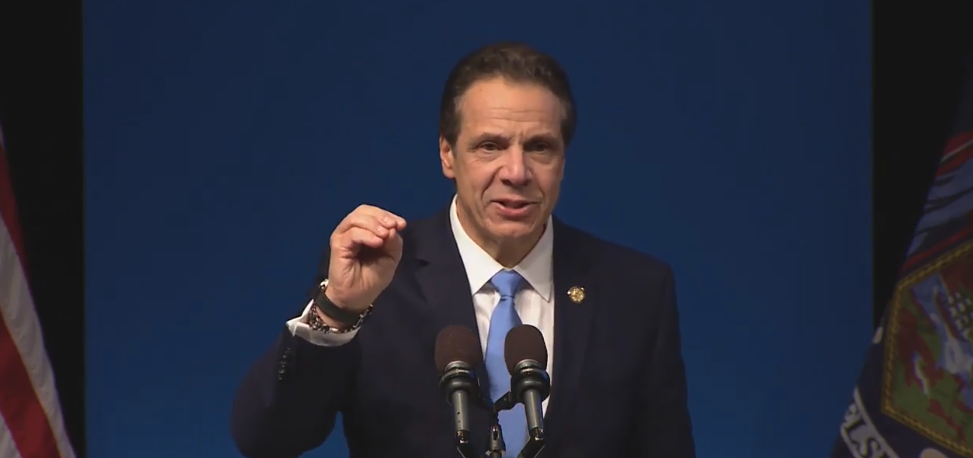 New York State Governor Andrew Cuomo will have only ten days to sign S6395, the bill that prohibits companies from entering Confessions of Judgment in New York against non-New York State debtors, once its delivered to him. Only two possible contingencies could prevent that from happening:
New York State Governor Andrew Cuomo will have only ten days to sign S6395, the bill that prohibits companies from entering Confessions of Judgment in New York against non-New York State debtors, once its delivered to him. Only two possible contingencies could prevent that from happening:
(1) An official veto
(2) a pocket veto
Neither is expected to take place. Reining in the use of COJs was an official part of the Governor’s 2019 justice agenda.
The law only requires that a debtor reside or have a place of business in a New York county and that the judgment only be filed and entered in that county. Whether the filing party is located in New York or Florida or Alaska makes no difference. For a personalized legal analysis, contact an attorney.
The law also only affects a narrow process, the entering of a COJ in New York. It does not prevent parties from filing lawsuits in New York.
As the bill requires the Governor’s signature to become law, the usage of COJs in New York has dwindled but has not disappeared. New York State court records examined by deBanked demonstrate that some companies are continuing to file COJs in New York against out-of-state debtors and that county clerks are continuing to honor them. However, a handful of debtors appear to be challenging previously entered COJs on the basis of S6395’s passage through the state legislature. It remains to be seen how fruitful such defenses might be.
In recent weeks, a number of companies in the small business finance industry have publicly announced that COJs will no longer be required going forward.
You can follow the bill’s path to the Governor’s office here.
This article has been updated to reflect that the deadline rules first require delivery to the Governor

See Post... confessions of judgment was immoral.”, , the confession of judgment ban is very specific, it prohibits the entering of a coj in new york against a non-new york party. it does not prevent parties from filing lawsuits in new york. it does not prohibit cojs from being filed in other states. this law is significant because approximately 99% of cojs being utilized in the small business finance industry were being filed in new york regardless of where the debtor resided. that is because the new york court system is the fastest and most efficient when it comes to entering cojs and securing a judgment., , the bill was drafted in response to a controversial story series published by bloomberg reporters zeke faux and zachary mider that alleged abuses were taking place in the new york courts via cojs.... |
See Post... confessions of judgment, legal instruments that short-circuit the normal litigation process and are prone to abuse. the bill, which would prohibit their use against out-of-state debtors, has cleared two committees in the assembly and could come up for a vote before the legislative session ends on june 19., , , “i’m hopeful that albany will act on this issue,” senator brad hoylman said in a june 13 statement. the democrat runs the senate judiciary committee and introduced a companion bill in that chamber., , 400% interest, , cash-advance lenders offer small businesses such as landscapers and coffee shops unregulated, short-term loans that can cost the equivalent of 400% or more in annualized interest. some firms require borrowers to sign a confession of judgment just to get the money., , , by signing, borrowers waive their legal rights and agree in advance to lose any disp... |
Confessions of Judgment in MCA Make the Evening News... confessions of judgment (cojs) in erie county for merchant cash advance companies, according to a statementhis office published this week. prior to being elected clerk, kearns was an assemblyman in the new york state legislature., on monday night, kearns appeared on channel 4s evening news in buffalo to discuss why his office had made the decisi... |


